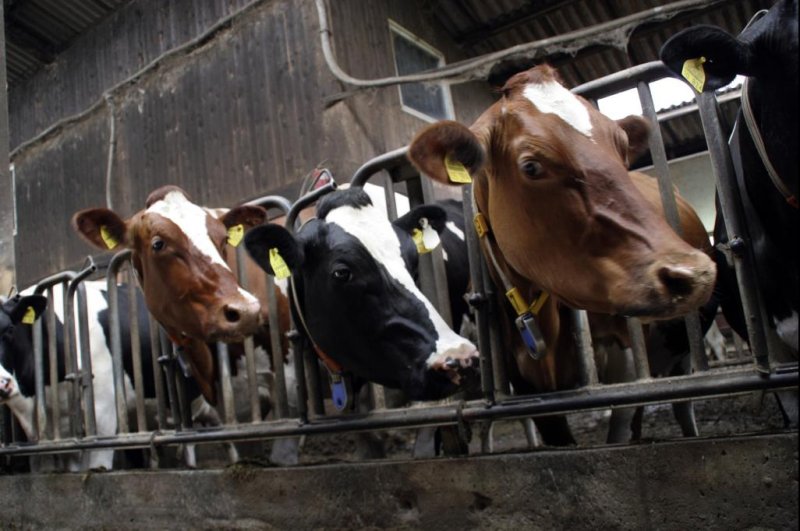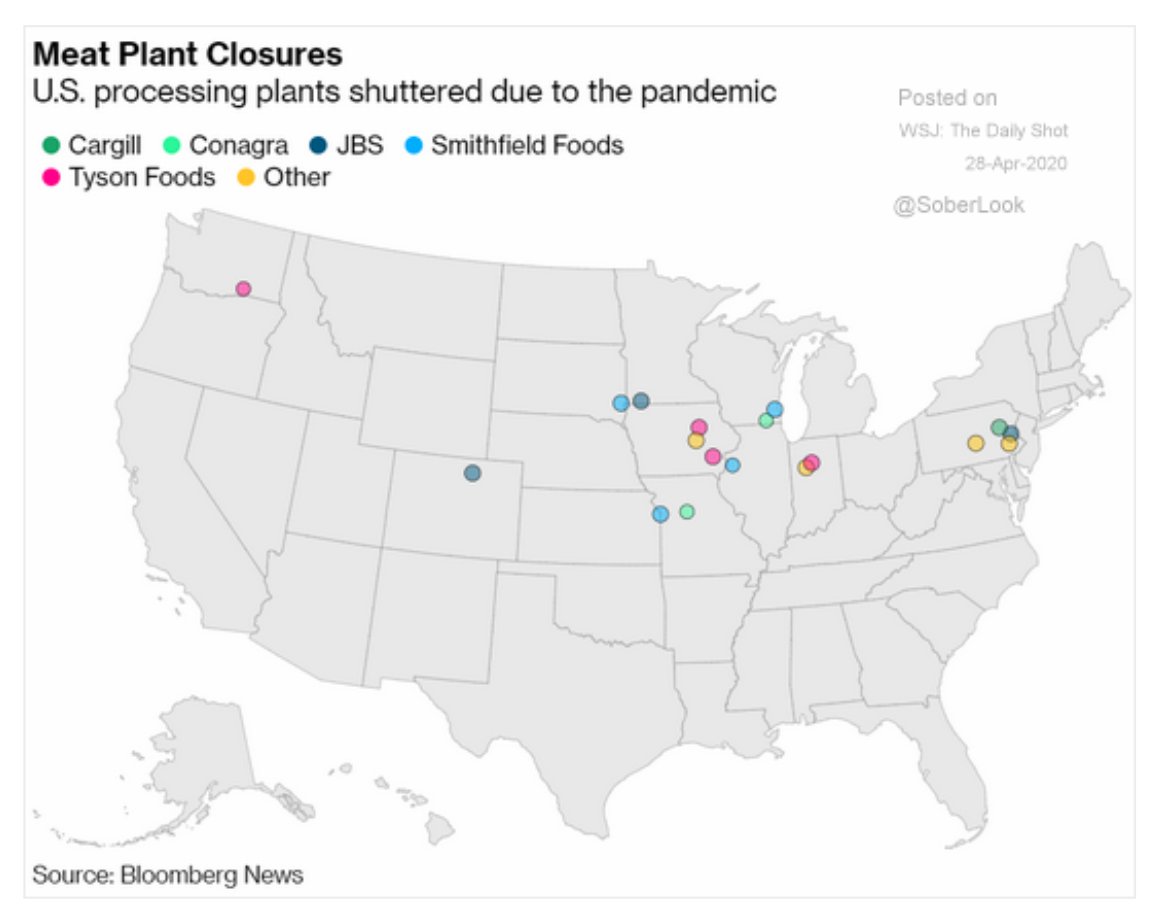CDC: Nearly 5,000 workers at meat processing plants diagnosed with COVID-19

With cases of COVID-19 rising among employees at meat processing facilities, fears are rising about the pandemic's threat to the food supply chain. Photo by Fred Lehmann/Pixabay
May 1 (UPI) -- Nearly 5,000 workers in 115 meat processing workers across 19 states have been diagnosed with COVID-19, according to figures released Friday by the U.S. Centers for Disease Control and Prevention.
Cases of the disease, caused by the new coronavirus, SARS-CoV-2, were reported between April 9 and 27, the CDC said, and account for roughly 3 percent of all workers at the impacted facilities. To date, 20 of the workers have died from the virus.

POST MODERN SWEAT SHOP
CARGILL PLANT, BROOKS, ALBERTA
ONE DEATH, CURRENTLY OPEN AND OPERATING
AS OF MAY 4TH
The agency also noted, however, that the list is not comprehensive. Facilities in at least four additional states reported one or more confirmed cases of the virus, but did not submit data in time to be included in the analysis.
In addition to the financial implications of people not working, virus spread at meat processing facilities has already impacted supplies across the country.
To combat potential shortages, President Donald Trump earlier this week signed an executive order under the Defense Production Act, ordering meat processing facilities to remain open during the pandemic.

Marcus, who is also director of the Program for Health Care Negotiation and Conflict Resolution at Harvard, said that since food going to urban areas comes from rural areas, there are inherent risks to the food chain.
"If those rural areas were not as careful about the physical distancing, were not as quick jumping into areas where there were cases," he said, "what's that going to mean nationally in terms of the food chain?"
Experts have said that, at least to date, there's no evidence that livestock and poultry -- the animals being processed at these facilities -- are at risk for COVID-19.
The agency also noted, however, that the list is not comprehensive. Facilities in at least four additional states reported one or more confirmed cases of the virus, but did not submit data in time to be included in the analysis.
In addition to the financial implications of people not working, virus spread at meat processing facilities has already impacted supplies across the country.
To combat potential shortages, President Donald Trump earlier this week signed an executive order under the Defense Production Act, ordering meat processing facilities to remain open during the pandemic.

Last week, Tyson Foods suspended operations at its Waterloo, Iowa, plant after almost 200 out of 2,800 workers tested positive for COVID-I9. The company is among more than a dozen meat plants that have closed since the start of the pandemic.
"I think one of the questions, and we don't have an answer, is -- what will be the impact on the food supply?" Dr. Leonard Marcus, co-director of the National Preparedness Leadership Initiative at Harvard T.H. Chan School of Public Health, said on a conference call with reporters this week.
"I think one of the questions, and we don't have an answer, is -- what will be the impact on the food supply?" Dr. Leonard Marcus, co-director of the National Preparedness Leadership Initiative at Harvard T.H. Chan School of Public Health, said on a conference call with reporters this week.
Marcus, who is also director of the Program for Health Care Negotiation and Conflict Resolution at Harvard, said that since food going to urban areas comes from rural areas, there are inherent risks to the food chain.
"If those rural areas were not as careful about the physical distancing, were not as quick jumping into areas where there were cases," he said, "what's that going to mean nationally in terms of the food chain?"
Experts have said that, at least to date, there's no evidence that livestock and poultry -- the animals being processed at these facilities -- are at risk for COVID-19.
No comments:
Post a Comment